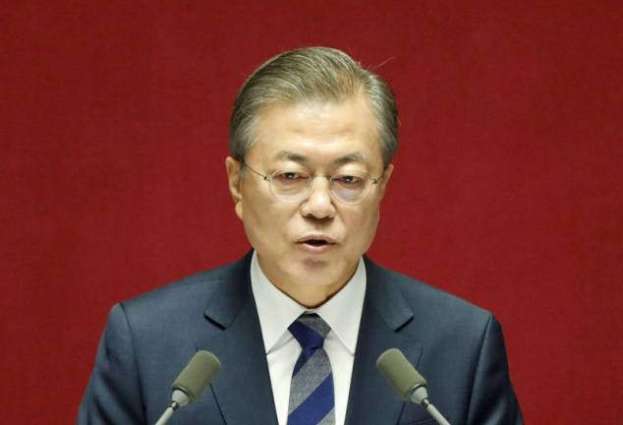South Korean President Moon Jae-in called on Japan on Monday to cancel its recent restrictions on exports of high-tech materials used in the production of semiconductors and digital displays to South Korea
MOSCOW (Pakistan Point News / Sputnik - 08th July, 2019) South Korean President Moon Jae-in called on Japan on Monday to cancel its recent restrictions on exports of high-tech materials used in the production of semiconductors and digital displays to South Korea.Japan announced restrictions on exports of some high-tech materials to South Korea last week after the situation over Japanese reparations to Korean victims of forced labor escalated.
"[I] call on the Japanese side to retract the measure and call for sincere consultations between the two countries," Moon said at a government meeting, as quoted by Yonhap news agency.
The president also pledged to give as much support as possible to domestic manufacturers so that they could boost their global competitiveness in the industry and decrease their dependency on imports of core materials.
"[I hope] corporations will expand technology development and investment, and make more endeavors to break from the externally dependent industrial structure via win-win cooperation with component and material [production] firms," the president said.
Tokyo's announcement of export restrictions reportedly came in response to recent South Korean court rulings that had ordered Japanese companies to pay compensation to the victims of forced labor during Japan's colonization of the Korean Peninsula. Japan has expressed discontent with the rulings, arguing that matters regarding wartime reparations were already settled.
The ties between the two Asian countries have long been aggravated by the memory of Japan's colonial rule over Korea from 1910-1945. It is believed that Japanese companies forced prisoners of war as well as local residents into hard labor in the Japanese military industry during the occupation and throughout World War II.




